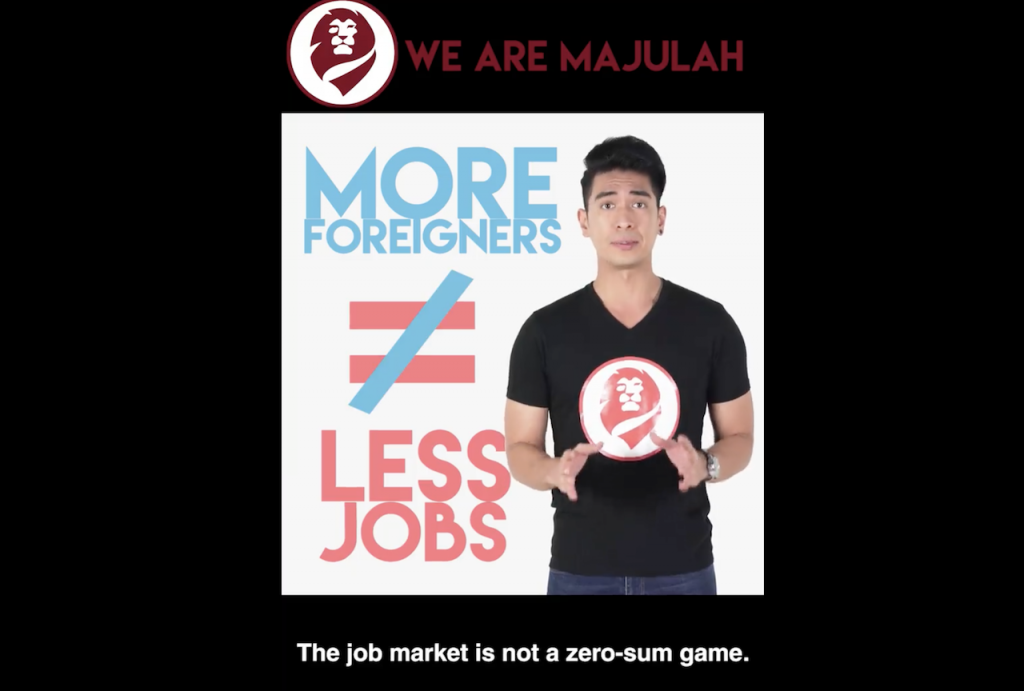Life as a Singaporean is pretty straightforward, right?
All you have to do is to consistently get the best results in your entire cohort from primary school to university (or even further), where you graduate with first-class honours and secure a job with an MNC 6 months before graduation. That cushy job would easily pay for the car you drive and the condominium you live in with your family. Heck, you could even take annual family trips to Europe without breaking the bank.
This is the meritocratic dream that has surrounded us since the day we hoisted our backpacks onto our shoulders and left for primary school.
Back then, we got a gold star if we did well in a test. Sometimes, we even got rewards from our parents, who might have incentivised us by promising to buy the latest game console or the newest handphone in the market. At this age, this is the stuff that propels us to work hard as individuals and strive for academic excellence.
Perhaps this single-minded approach sees us place less emphasis on equally important soft skills such as teamwork and collaboration. We focus so much on what we are good at that we tend to forget to work on our flaws, or the fact that they can be balanced out when we work with people who can complement us, as we complement them.
Fast forward the years: you find yourself fighting for that promotion alongside your colleague, who comes from a similar background as you. Even though the professional rivalry is clear, there is mutual respect for one another, as you are bonded by the shared experiences and dreams sold to you since that first day in school.
But what if, instead of a fellow Singaporean, you were up against a foreigner? Would you feel different? Why do we hear gripes about foreigners taking away opportunities from Singaporeans? How much of this is justified?

When we take a step back and look at the bigger picture, we’ll see that the resentment some of us bear towards foreigners is misguided.
Furthermore, most of us fail to realise that the job market is not a zero-sum game. Just because one foreigner is being hired doesn’t mean there is one less job for a Singaporean.
Here’s a reality check:
In the operations industry, for every 3 foreigners that are given jobs, 7 Singaporeans are hired.
When a foreign company sets up shop in Singapore, they pay taxes which boost our economy and hire locals.
Imagine: if there were only local companies and startups in Singapore, how many jobs would there even be for us locals?
Aside from that, we need to understand the importance of new perspectives. What foreigners bring to the table when they come to work in Singapore is a fresh set of eyes. This leads to working environments becoming more vibrant, which in turn results in more ideas that come from picking each other’s brains.
With that, we’ll be able to innovate and diversify. Having a foreign perspective of things has the potential to boost our growth as a nation, which we can only benefit from.
As mentioned in this video, one industry that has reaped the most benefits from this is the biomedical industry. Input from foreigners during the research and developmental stages helped to increase manufacturing output five-fold.
Let’s not forget the rate at which Singapore’s working population is ageing, and that our general population is declining.
In 2015, 1 out of 8 Singaporean workers was aged 65 and above. By 2030, it will be 1 in 4. Having a continuous injection of foreigners into our population and workforce will ensure Singapore remains a dynamic economy where opportunities are created to meet Singaporeans’ aspirations.

For some, foreigners represent all the things we “deserve” but do not have, from preferential treatment to dating prospects. This skewed perspective conveniently blames foreigners for nearly everything.
Not only are such perceptions rarely justified, they prevent us from making the most of what we have. Imagine how much more we could gain should we instead ask: “What can we learn from working with people who have different backgrounds from us?”
From working with foreigners, we can gain exposure that we normally might not have had and learn newer and more efficient ways to solve problems. From there, we would be able to use these new skills to push ourselves to greater heights.
As shown with the above statistics, not only will having foreigners working in Singapore improve the economy, it will not impede or hinder the progress of us Singaporeans.
Furthermore, as globalisation makes the world more connected, Singaporeans are becoming increasingly well-travelled. We know what it is like to travel to a foreign land and be warmly welcomed by the locals, who allow us to assimilate into their culture even if just for a few days. There are few things more gratifying than to be accepted into a group of people for being who you truly are.
In the same way, there is every chance that the MNC you work for relocates you to a foreign country.
You would have to leave your family, local fare, and creature comforts. Instead of coming home to your family and a hot, home-cooked dinner, you buy sandwiches from 7-11 and eat alone at home while scrolling through Facebook pictures. How would it feel if locals were to write nasty forum posts about your nationality? Conversely, how would you feel if they welcomed you as a friend?
Shouldn’t we then extend that same hospitality to the foreigners who leave their families and homes, to contribute to the Singapore workforce?
In “To Kill A Mockingbird”, the protagonist says, “You never really understand a person till you climb into his skin and walk around in it.”
In a country where all are valued regardless of race, language, or religion, things could be better.






